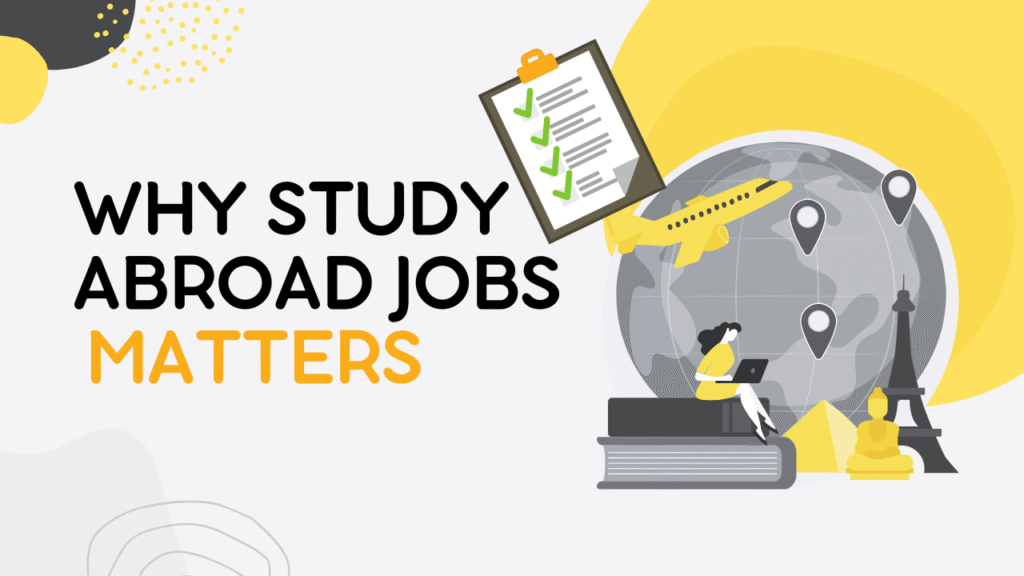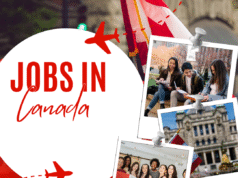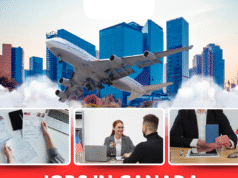For many students, the dream of pursuing education overseas comes with a pressing question: How can I afford it? That’s where study abroad jobs play a crucial role. Whether you’re considering part-time work while studying, post-graduation career opportunities, or remote side hustles, understanding how to find and secure study abroad jobs can make your international education journey more sustainable and rewarding.
This ultimate 2025 guide covers everything you need to know about study abroad jobs: eligibility rules in different countries, types of employment available for international students, work permits, popular industries, strategies to balance work and study, tips for career growth, and frequently asked questions.
By the end of this article, you’ll not only know how to find study abroad jobs but also how to turn them into stepping stones for your long-term career success.
Why Study Abroad Jobs Matter for International Students
Choosing to study in another country is a huge investment, and the costs go beyond tuition. You’ll need to manage:
- Rent and accommodation
- Food and groceries
- Transportation
- Books, supplies, and technology
- Visa and insurance fees
Working part-time or full-time after graduation helps you:
- Offset Costs – Earn extra income to ease financial pressure.
- Gain Experience – Build global work skills that enhance employability.
- Expand Your Network – Meet professionals and peers in your industry.
- Improve Language Skills – Practise the local language in real-world settings.
- Build Independence – Gain confidence managing finances and responsibilities abroad.

Eligibility Rules for Study Abroad Jobs
Before applying for work as an international student, you must understand the legal framework. Each country has specific visa conditions regarding study abroad jobs.
1. United States (USA)
- On F-1 visas, you can work 20 hours per week on campus during semesters.
- Optional Practical Training (OPT) and Curricular Practical Training (CPT) allow off-campus work related to your major.
- H1-B visa sponsorship may be required for post-graduation full-time jobs.
2. Canada
- International students can work up to 20 hours per week off-campus during academic sessions.
- Full-time work is allowed during scheduled breaks.
- Post-Graduation Work Permit (PGWP) allows you to work after graduation.
3. United Kingdom (UK)
- Tier 4 student visa holders can usually work 10–20 hours per week depending on their program.
- Graduates may apply for a Graduate Route visa for up to 2 years of work.
4. Australia
- International students can work 24 hours per week during term time.
- Full-time work during holidays.
- Temporary Graduate visa (subclass 485) supports work after studies.
5. European Union (EU)
- Work rules differ per country.
- Germany allows 120 full days or 240 half days annually.
- France allows 964 hours annually (approx. 20 hrs/week).
Types of Study Abroad Jobs Available
1. On-Campus Jobs
Examples:
- Library assistant
- Teaching/research assistant
- Cafeteria staff
- IT support desk
2. Off-Campus Part-Time Jobs
Examples:
- Retail store cashier
- Restaurant server or barista
- Babysitting/tutoring
- Customer service roles
3. Internships
- Paid or unpaid, often related to your field of study.
- Some programs integrate internships into your degree.
4. Remote/Online Jobs
- Freelancing (writing, graphic design, coding).
- Virtual assistant roles.
- Online tutoring.
5. Post-Graduation Full-Time Jobs
- Work permits allow transition to professional employment.
- Many international graduates find permanent positions in IT, healthcare, finance, and engineering.
Popular Industries for Study Abroad Jobs
- Hospitality and Tourism – Hotels, restaurants, events.
- Retail – Shops, supermarkets, clothing stores.
- Technology – IT support, internships, software development.
- Education – Tutoring, language assistance.
- Healthcare – Caregiving, assistant roles.
- Research and Academia – Lab assistantships, university research.
How to Find Study Abroad Jobs
- University Career Centres – Most schools have career services to help students.
- Online Job Portals – Sites like Indeed, Glassdoor, LinkedIn, and region-specific platforms.
- Networking – Student associations, professional groups, and LinkedIn.
- Local Businesses – Walk-in applications to cafes, shops, or restaurants.
- Recruitment Agencies – Agencies that specialize in student work placement.
Balancing Study and Work Abroad
Working while studying can be rewarding but challenging. Tips:
- Plan your schedule – Prioritise lectures and assignments.
- Choose flexible jobs – Employers familiar with student needs are best.
- Don’t exceed visa limits – Violating work hours can risk your visa.
- Maintain self-care – Avoid burnout by balancing study, work, and rest.
Tips to Succeed in Study Abroad Jobs
- Learn Local Workplace Culture – Understand etiquette, communication, and work style.
- Build Transferable Skills – Customer service, teamwork, leadership.
- Keep Records of Work – Future employers may request references.
- Upgrade Skills Online – Certifications and short courses improve job prospects.
- Aim for Growth – Use part-time jobs as a stepping stone to professional roles.
Top Countries with Best Study Abroad Job Opportunities
- Canada – Generous work rights, multicultural environment.
- Germany – Low tuition and strong job market.
- Australia – High demand in healthcare and tech.
- UK – Historic universities and Graduate Route for work.
- USA – Opportunities in tech, finance, and research.
Common Challenges and How to Overcome Them
- Language Barriers – Take language classes and practise daily.
- Cultural Differences – Join student groups to adapt faster.
- Workload Stress – Time management tools can help.
- Visa Restrictions – Always follow legal guidelines.
FAQs About Study Abroad Jobs
Q1. Can I work full-time as an international student?
Not usually during term time; most countries limit to 20 hours/week.
Q2. Do all countries allow international students to work?
No, always check your visa and local laws.
Q3. Can I switch from a student visa to a work visa?
Yes, many countries offer post-graduation work permits or transition visas.
Q4. What are the highest paying study abroad jobs?
Research assistantships, IT internships, and specialised tutoring roles often pay higher.
Q5. Do online remote jobs count under visa restrictions?
Yes, but regulations vary. Always confirm with immigration authorities.
Conclusion
For international students, study abroad jobs are more than just a financial lifeline—they are pathways to cultural immersion, skill development, and future career opportunities. From on-campus roles to post-graduation careers, these jobs provide invaluable experience that complements academic learning. By understanding the rules, exploring available industries, and strategically balancing work with study, you can make the most of your overseas education journey. If you’re planning to study overseas in 2025, securing study abroad jobs should be a key part of your preparation.
For more resources on international study opportunities, visit abxpl.com and check official visa guidelines on government websites like Study in Canada or UKCISA.







